Marketing Proposal Template
Win clients with a clear and convincing Marketing Proposal – craft an engaging, goal-driven, and results-focused proposal in no time.
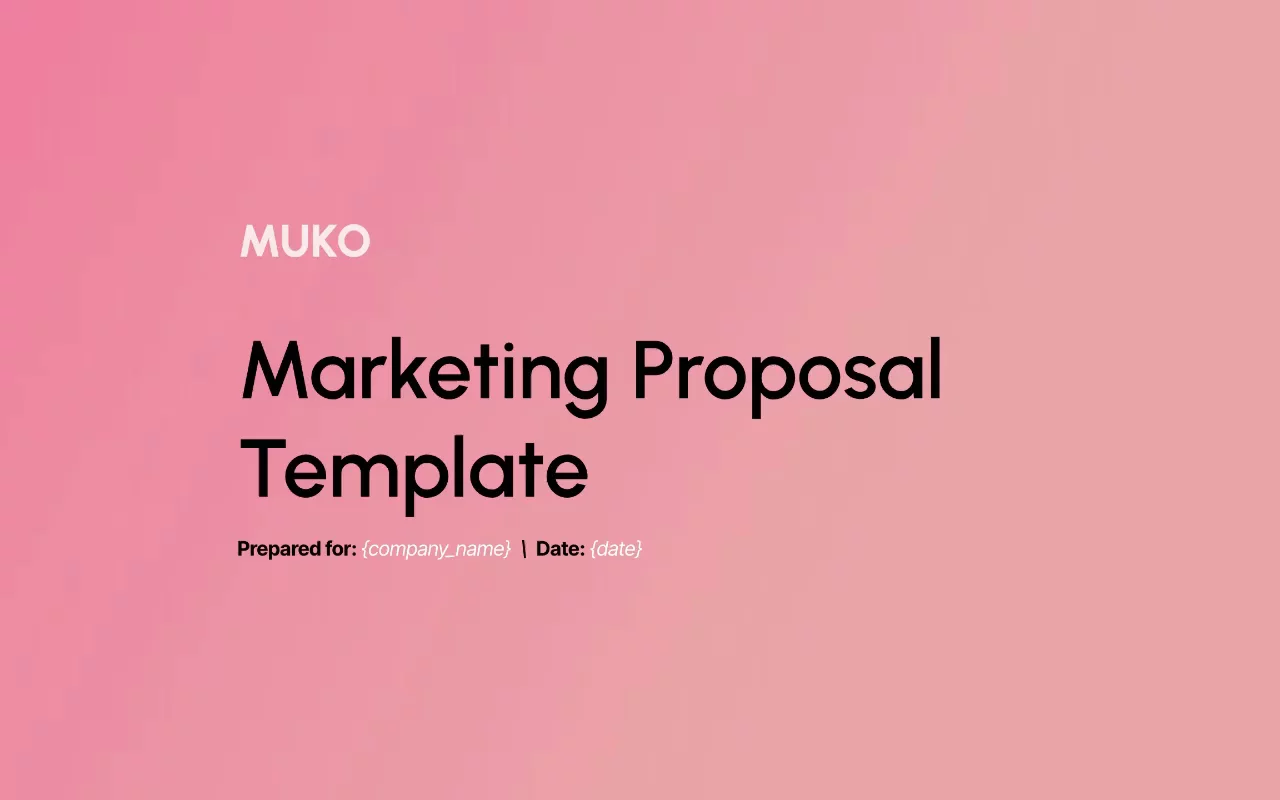
About this template
Impress potential clients with our Marketing Proposal Template. Designed to highlight your marketing strategies and services, this visually appealing template showcases your expertise and helps you secure more projects.
What's included?
- Project scope
- Our process
- Project investment
- Quote
- Team video
Included in our template
Key priorities and goals
Show your clients you understand their business inside out. Use this section to highlight their marketing objectives for the next 12 months—whether it’s improving brand awareness, driving more qualified leads, or launching new campaigns.
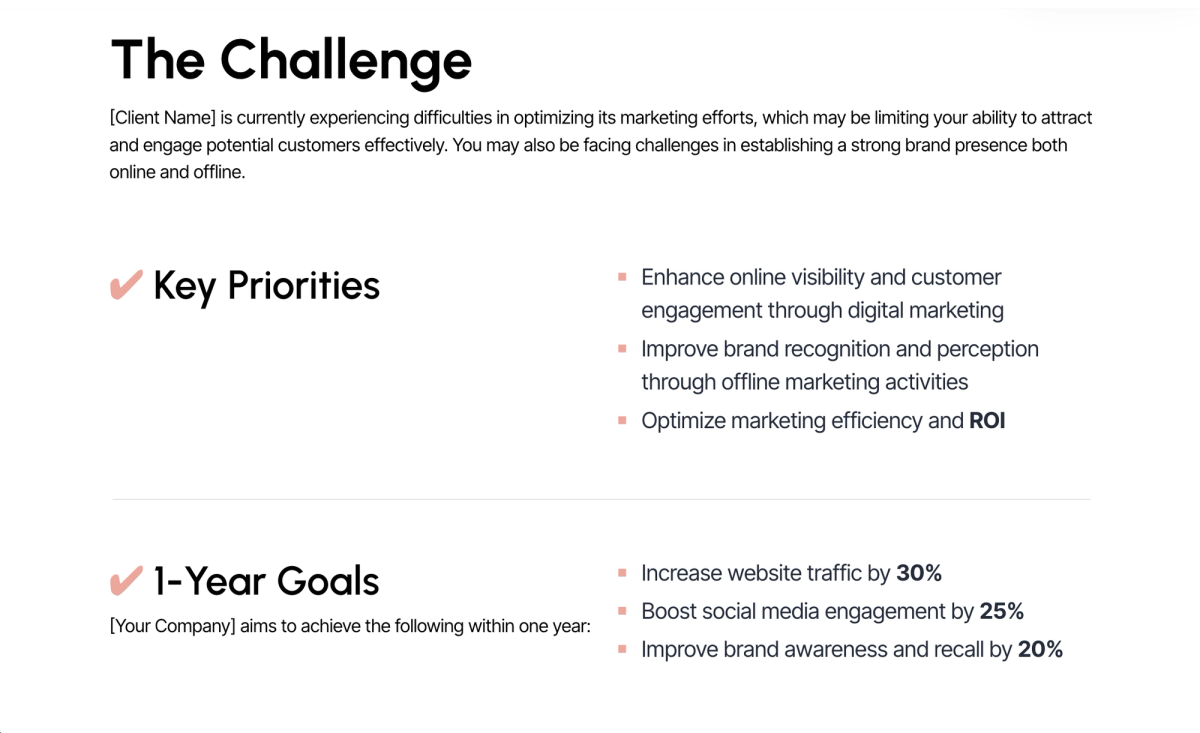
How you can help
This is your chance to position your agency or marketing team as the perfect partner to achieve those goals. Outline your approach—from audience research and channel strategy to creative execution and performance tracking.
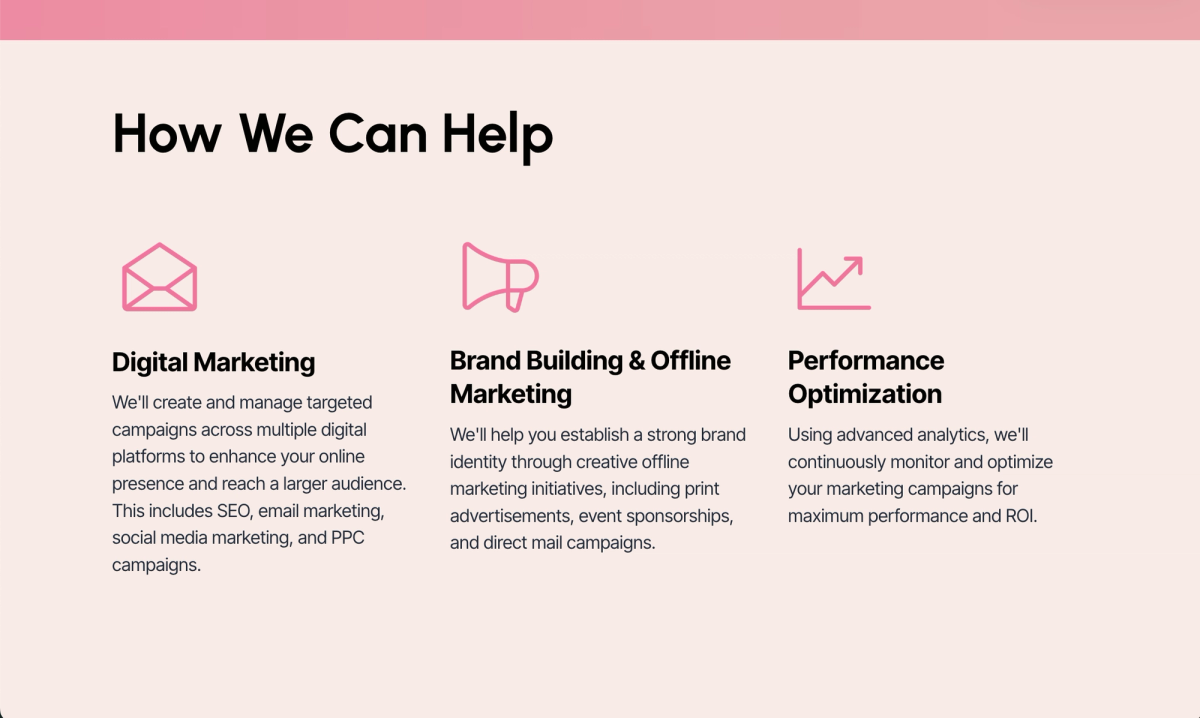
Dynamic pricing
Replace static PDFs with an interactive pricing table that gives clients flexibility and transparency. Add multiple package options, include optional add-ons, and let clients toggle between them in real time. Qwilr’s dynamic pricing ensures clarity and reduces friction—so your proposal can close deals faster while keeping your brand’s presentation polished.
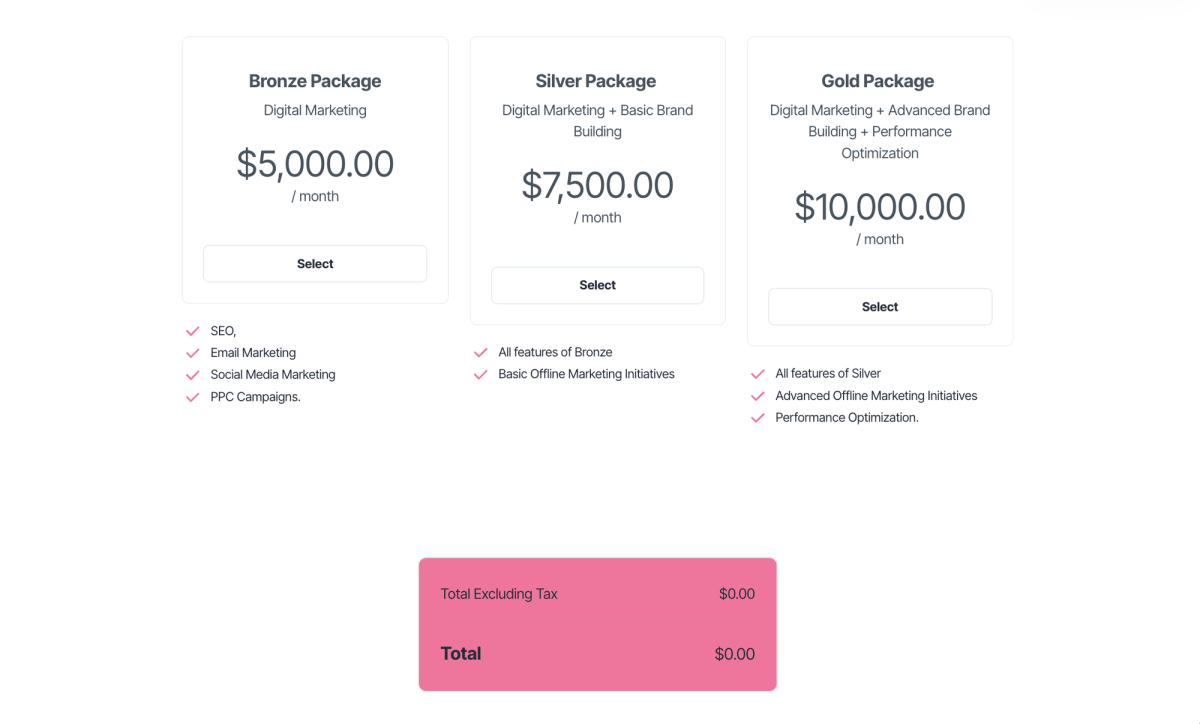
Formal agreement and e-sign
Seal the deal right inside your proposal. Include your standard terms and agreement section, then use Qwilr’s built-in e-signature and payment integrations to streamline client onboarding. No printing, no back-and-forth emails—just a smooth, professional signing experience that accelerates your workflow and helps you move from pitch to project in minutes.
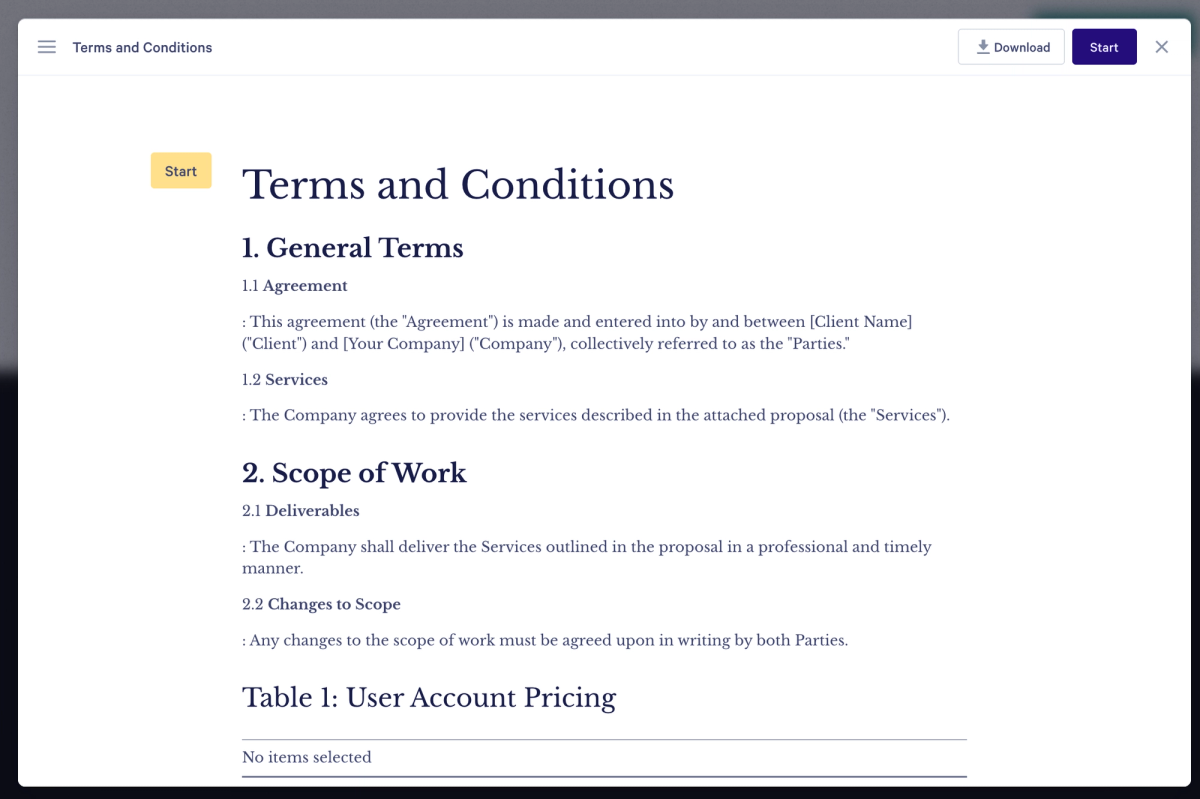
Why Qwilr?
Design interactive proposals
Impress buyers with interactive proposals that stand out. Qwilr’s drag-and-drop editor makes it easy to create on-brand, stunning collateral — no design skills needed. Add videos, dynamic pricing, and ROI calculators to deliver a unique experience, while automated brand customizations ensure every proposal looks professional.
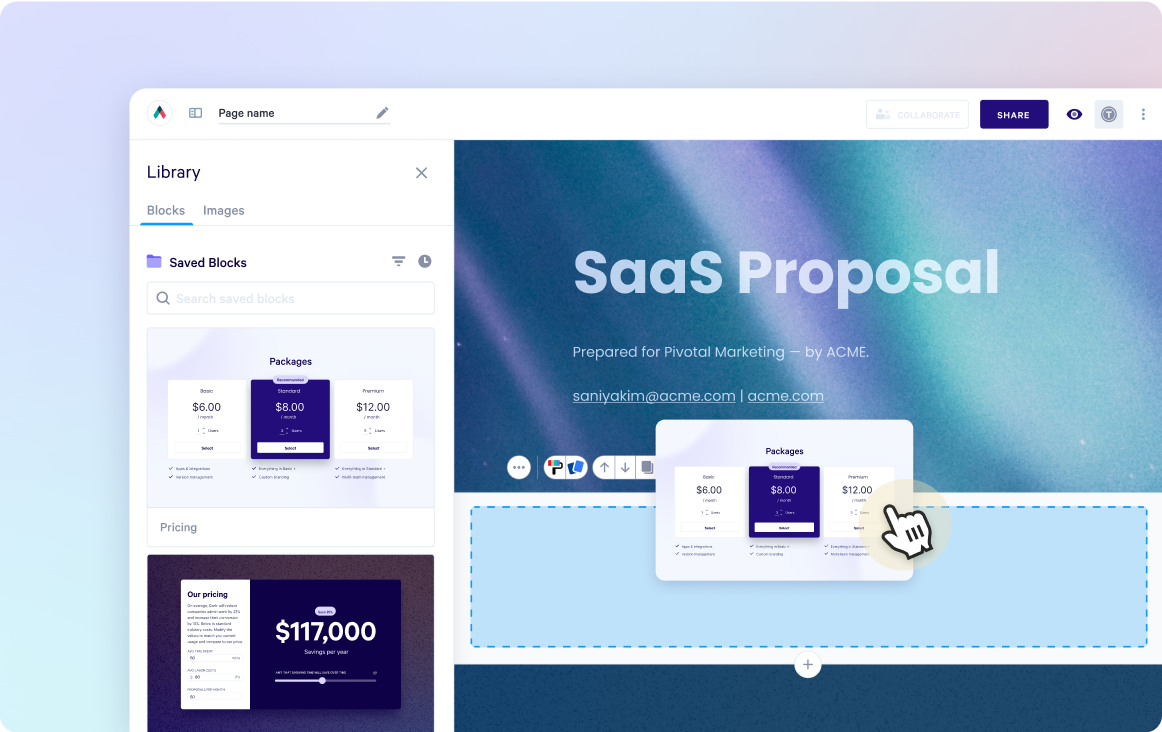
Built-in e-sign functionality
Combine stunning proposals, plain-text agreements, and secure e-signatures in one tool. Add print-friendly agreements alongside dynamic content and collect legally compliant e-signatures with ease. Track progress, capture multiple signatures, and close deals faster with Qwilr’s integrated e-sign functionality.
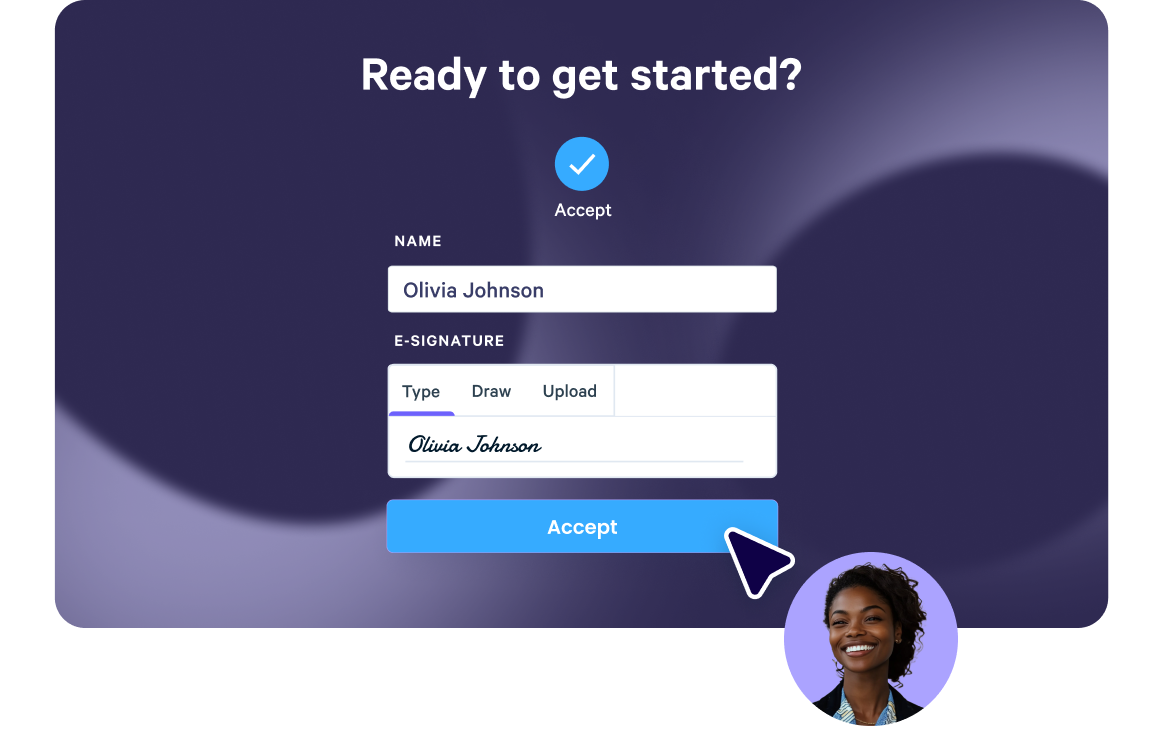
Real-time proposal analytics
Qwilr’s analytics provide full visibility into buyer engagement. Track when proposals are opened, signed, or shared, and get instant notifications for key buyer activities. See what buyers click on, how they engage, and prioritize follow-ups based on real-time insights—all designed to help close deals faster.
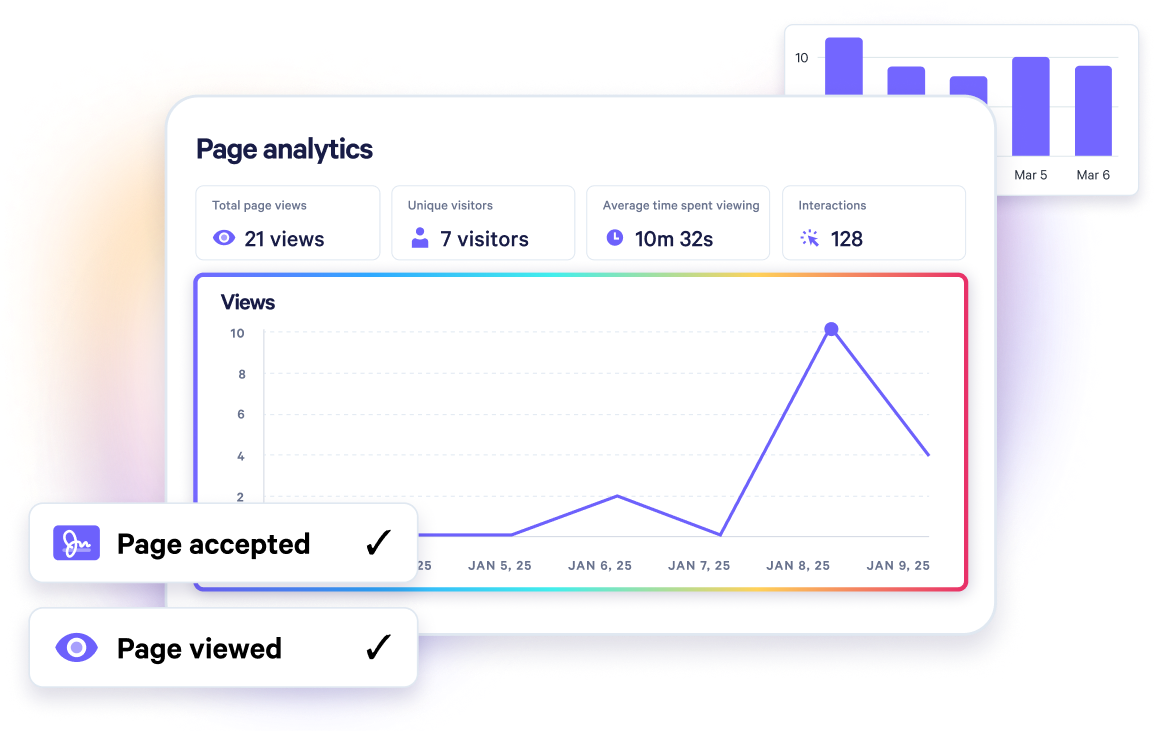
Templates for every use case
Explore templates for sales, marketing, customer success, sales enablement and more.
Explore proposal templatesFrequently asked questions
When writing a marketing proposal, it's important to keep in mind the client's needs and goals. Focus on demonstrating how your agency can solve their problems and achieve the outcomes they desire. Use clear, concise language, and avoid jargon or technical terms that the client may not understand. Be sure to include a comprehensive strategy, budget, and timeline for executing the proposed plan.
An effective marketing proposal should include:
- An overview of the client's needs and goals.
- A proposed marketing strategy that addresses those needs and goals.
- A detailed timeline and budget for executing the proposed strategy.
- Demonstrations of your expertise and experience, such as case studies or testimonials.
- Clear language that avoids industry jargon or technical terms that the client may not understand.
- A call-to-action that encourages the client to move forward with the proposed plan.
A good marketing proposal should be tailored to the client's needs and goals, demonstrate your agency's expertise and experience, and propose a clear and actionable plan for achieving their desired outcomes. It should be well-organized, easy to understand, and visually appealing.
The best way to present a marketing proposal to a client is to use a tool like Qwilr, which is more visual and allows you to easily track buyer engagement.
Here's a few more presentation wins you can try with Qwilr's marketing proposal template:
- Schedule a virtual meeting to walk the client through the proposal and provide an opportunity for questions and answers.
- Be sure to tailor the presentation to the client's needs and goals
- Use clear and concise language that avoids marketing industry jargon or technical terms that the client may not understand (performance marketers, we're looking at you!)








